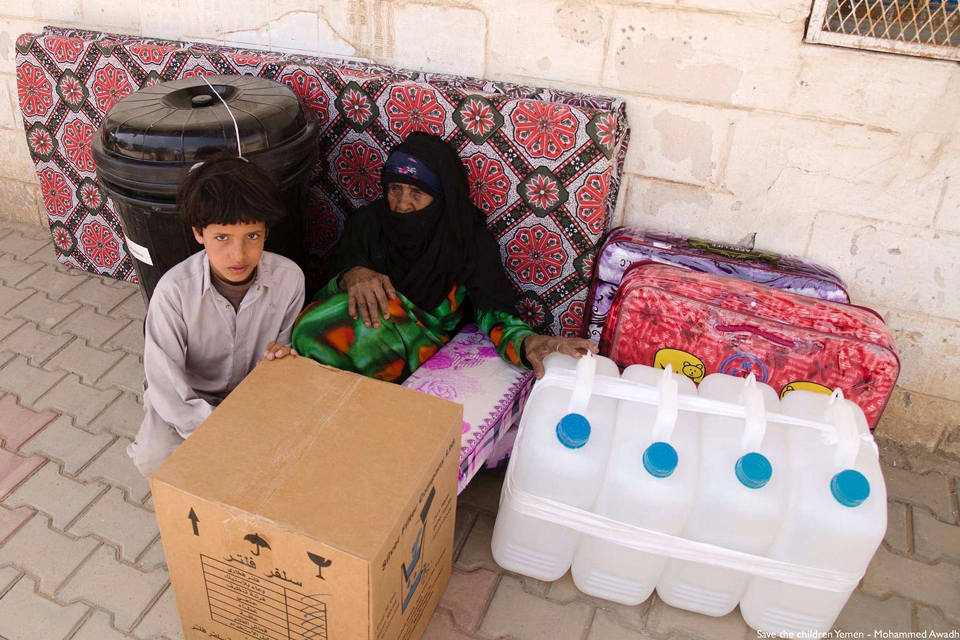"Yemenis are in the midst of one of the very worst humanitarian crises in the world"
Statement by Ambassador Matthew Rycroft of the UK Mission to the UN at the Security Council briefing on Yemen

Thank you Madam President for your initiative in holding this important open debate.
I welcome the briefings from Special Envoy Ould Cheikh Ahmed, from High Commissioner Zeid and from Assistant-Secretary-General Kang.
As they all have made painfully clear, the situation facing the people in Yemen is alarming. Yemenis are in the midst of one of the very worst humanitarian crises in the world. We have heard the statistics just now, but to bring it home to this chamber, if the members of this Security Council were an average group of fifteen Yemenis, twelve of us would need humanitarian assistance and four of us would need emergency food assistance just to survive.
Against that appalling backdrop, there are, however, some signs of hope. We welcome the positive progress made at the UN talks last week and the at times constructive approach taken by the delegations. I’m sure all of us here will join me in praising the Special Envoy for his efforts to bring the parties to the negotiating table. Ismail, you say you need our backing. On behalf of the United Kingdom, you have it. And I hope the whole Council will support you and encourage further progress at the talks.
The onus must now be on all parties to build on the progress made by taking forward the agreements and implementing further confidence building measures. This will lay the foundations for a sustainable peace. The UN facilitated talks remain the best way to resolve the current crisis in an inclusive manner. And I welcome the agreement by the delegations to ensure a greater involvement of women in the next round of talks. Women are greatly impacted by the conflict so we must heed their voices.
Madam President,
I believe that there are three steps that now need to be taken; a ceasefire, alleviating the humanitarian situation and implementing resolution 2216.
The first step has to be a meaningful and sustainable ceasefire that is respected by all sides. We welcome the agreement reached in Switzerland to extend the ceasefire until the 28th of December and give our full support to the work of the Coordination and De-escalation Committee. But there have been too many breaches over the past week and it does need to be extended further beyond the 28th of December. Without a ceasefire, all other efforts to improve the situation in Yemen – whether human rights, or humanitarian or political – they are all put in jeopardy. So I call on all sides to respect the ceasefire and fulfil their obligations under international humanitarian law.
Second, Madam President, we need to be doing all we can to alleviate the dire humanitarian situation and help the 21 million Yemenis in need of assistance. The agreement reached to allow humanitarian access to Taiz was a crucial step in this regard. Over a hundred World Food Programme trucks reached the city last week and medical supplies are also arriving.
All parties must do what they can to facilitate rapid and safe access for humanitarian aid, and remove bureaucratic impediments. Increasing commercial imports, improving port capacity and granting greater access to finance for traders will all be vital if markets are to reopen. We all have a role to play, and I’m proud the United Kingdom has doubled our assistance over the past year to around $110 million. But overall the international humanitarian response remains underfunded.
In addition, we should all be worried by the continuing arbitrary detentions and enforced disappearances of NGO workers, activists, protestors and journalists. These repressive measures by the Houthis are not only closing down the democratic space, they are also denying Yeminis the fundamental rights to which we are all entitled. The United Kingdom calls for the release of all those unlawfully detained, including the Yemeni Defence Minister, Mahmoud al Subaihi, and for the human rights of all Yemenis to be respected.
Madam President,
The third step needs to be building on the discussions in Switzerland last week for a framework for implementing UN Security Council Resolution 2216. This means the Houthis relinquishing weaponry, withdrawing from towns and cities and recognising the legitimacy of the Government of Yemen. It also means former President Ali Abdullah Saleh stopping his destabilising actions, which continue to undermine the peace, security and stability of Yemen.
There are other crucial areas for further progress; reviving the Social Welfare Fund, protecting state institutions, stopping the recruitment and use of children and taking action against the use of landmines; these are all vital to finding a sustainable peace in Yemen.
In addition, the Special Envoy has reminded us of the risk that AQAP and Daesh-Yemen will exploit the current situation to consolidate their position. The seizure of towns in Southern Yemen by AQAP earlier this month and the multiple and coordinated attacks conducted by Daesh-Yemen across the country should alarm us all. Countering such terrorist threats must remain a top priority for this Council and the international community as a whole.
Let me close, Madam President, by reiterating that a long term solution must be found through dialogue and negotiations. Let us encourage all sides to take forward agreements made in Switzerland and build on this solid foundation when talks resume next month. There will be much to discuss in 2016, to ensure resolution 2216 is implemented in full, and that ordinary Yemenis can eventually return to a life of normality and safety.
Thank you.